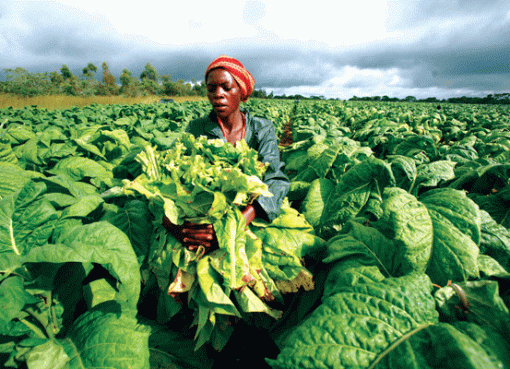Robert Owili inter-cropped his coffee with Matooke to provide shade for the young coffee plants
Karamoja is emerging out as new coffee frontier for Uganda.
Karamoja has traditionally been considered a land of nomadic pastoralists with limited farming activity. Today, the story is changing. Following the introduction of coffee to the region by Uganda Coffee Development Authority (UCDA), a group of farmers have embraced coffee growing and are mobilising their fellow community members to
embrace the cash crop.
Robert Owili Abia, one of the pioneers of coffee growing in Abim district, says coffee growing can make a difference in the lives of the people living in Karamoja.
Below is his story
Abia says he established his coffee garden in 2019.
“We are the pioneers of coffee growing in Abim district,” he says. “I have been a commercial farmer for quite some time. In 2006, I visited a commercial farmer in Masaka district at the invitation of H.E The President of Uganda. The farmer we went to visit was called Nyombi,” he adds.
When Abia saw what Nyombi was doing, he realized there is gold in agriculture. He later visited farmers in the Sebei region and saw how they grow Irish potatoes, Arabica coffee, matooke, wheat and other short term crops like cabbage and onions.
Abia says that visiting different farmers across the country opened his eyes to the potential of Karamoja becoming an agricultural hub. However, he needed support to make this dream a reality.
“I decided to write a concept on how Karamoja can make a difference. I took into account the fact that we have short term rainfall. I also pondered over how we can grow crops like coffee in Karamoja,” he explains.
Abia discussed this concept with Hon. Janet Grace Akech Okori-Moe, the Woman Member of Parliament for Abim district and after the discussion, decided to start with matooke and coffee to evaluate their performance in the district.
“In 2019, I was given coffee seedlings but the coffee seedlings came at a time when the rainfall had subsided. I went ahead and planted the seedlings. When I saw how well the seedlings were growing, I picked a lot of interest,” he adds.
Abia consulted agricultural subject matter specialists to help him gain more knowledge about coffee.
“They advised me to grow Robusta coffee because I am in the low land and not Arabica. I also planted matooke to provide shade for the young coffee and I found it good,” he says.
He adds: “Recently, I requested for more coffee seedlings to increase on what I had planted. I am very optimistic that the coffee seedlings will have optimal growth and meaningful output because I have planted them at the right time.”
Demystifying the idea that cash crops cannot grow in Karamoja
“It’s not true that coffee cannot grow in Karamoja. In the early 90s, I recall that my father was a commercial farmer who was growing cotton. At that time, we had cooperatives that were buying cotton,” Abia says.
Abia’s father was also growing sunflower and sorghum for commercial use.
“We used to sell the cotton internally. The sunflower and sorghum, were sold to Karamoja Seed Scheme Cooperative and they also sold the products to Sudan,” he explains.
Abia is now looking at how to develop the coffee value chain. “It’s now about looking for the market players. So, as we talk, I have a few friends in Sebei and Mbale who I am already in touch with. I am reaching out to their networks to see if we can get market for our coffee when the time comes,” he says.
To improve the soil fertility in his coffee garden, Abia uses manure from his kraal.
“I am using manure from the kraal. I store it for three months, then I take it to the garden,” he says.
“If you see the growth of my coffee and the growth of my matooke, it looks like it is in western Uganda or even central. Just because I have developed that concept, commitment and dedication to change the region for people not to think that cash crops can’t be grown in Karamoja and Karamoja can’t be transformed,” he says with pride.
Challenges
Despite the progress, Abia says that he has experienced a number of challenges, which need to be addressed in the mid-term and long term.
One of the challenges he faced when he was starting out was the lack of guidance from extension staff .
The other challenges he faces now are natural calamities, pests and diseases and the dry spell in Karamoja.
“Issues of the dry spell are really challenging because sometimes you may need to manually water the coffee seedlings so that they survive the dry spell and survive until the rainy season,” he says. “Despite this, I want to assure you that there is nothing impossible in Karamoja,” Abia says with optimism.
“Now that UCDA has come on board to support us, we shall go very far with our coffee,” he adds.
Adapted from the latest UCDA Newsletter. Read more stories here; http://bit.ly/3rmEwlo





